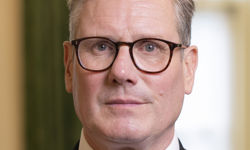As reported by the National Union of Journalists: The union call follows widespread protests by Jewish and Muslim organisations as well as over 100 cross-party MPs, at the publication of inflammatory comments by IPSO board member Trevor Kavanagh who this week refereed to "The Muslim Problem" in his Sun newspaper column. Kavanagh said: "But there is one unspoken fear, gagged by political correctness, which links Britain and the rest of Europe. The common denominator, almost unsayable until last week’s furore over Pakistani sex gangs, is Islam."
Chris Frost, NUJ ethics council chair, said: "Trevor Kavanagh's comments are an abuse of free speech and the press standards watchdog should accept complaints that traduce social groups in our society. Kavanagh is using the actions of a small group of individuals to place blame on a whole religion of 1.8 billion people.
"IPSO should launch an immediate investigation into the prevalence of Islamophobia, racism and hatred espoused in the press. IPSO claim to be set apart from their predecessor, the Press Complaints Commission, because they can run investigations and do monitoring - now is the time to prove it."
The NUJ's code of conduct for journalists states: "A journalist produces no material likely to lead to hatred or discrimination on the grounds of a person’s age, gender, race, colour, creed, legal status, disability, marital status, or sexual orientation."
There is no similar clause in the IPSO editors' code of practice, which states: "The press must avoid prejudicial or pejorative reference to an individual's, race, colour, religion, sex, gender identity, sexual orientation or to any physical or mental illness or disability."
"Details of an individual's race, colour, religion, gender identity, sexual orientation, physical or mental illness or disability must be avoided unless genuinely relevant to the story."
The NUJ has long campaigned for the press regulator to accept complaints based on how specific groups are represented in the media, rather than just confine its remit to comments relating to specific individuals.












